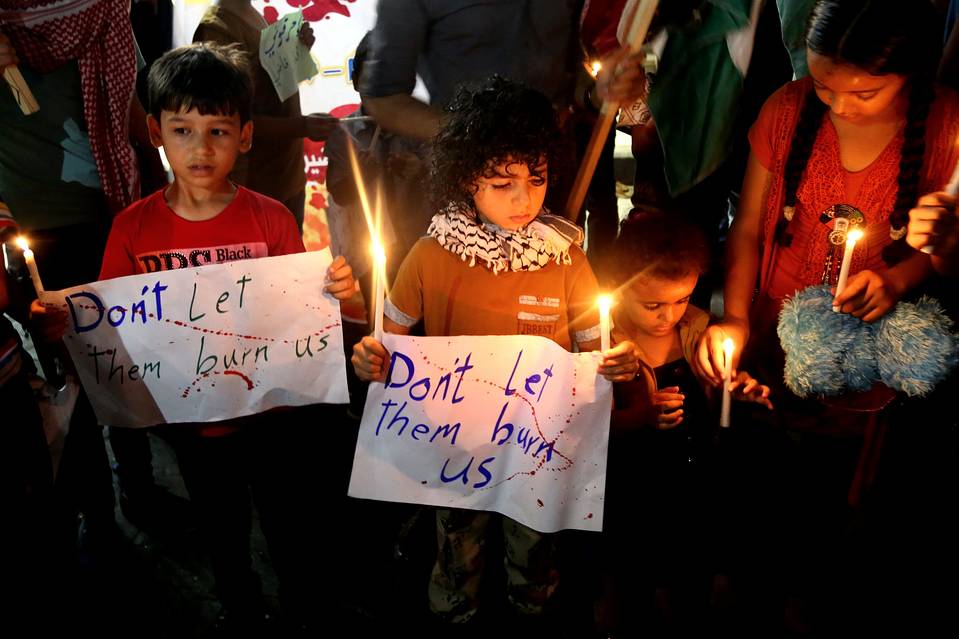Killing Palestinian Children Inevitable Outcome Of Israeli Policies
By Nora Barrows-Friedman
24 October, 2015
The Electronic Intifada

Since 1 October, Israeli forces have killed more than 50 Palestinians, including at least 10 children, across the occupied West Bank, including East Jerusalem, and the Gaza Strip. According to initial data from Defense for Children International-Palestine (DCI-P), more than 100 Palestinian children have sustained injuries in that period — and the number keeps climbing.
DCI-P also states that “In response to escalating violence, Israeli forces appear to be implementing a ‘shoot-to-kill’ policy, which in some incidents may amount to extrajudicial killings.” Israeli officials have given the green light to military and police forces to fire live ammunition during protests in Jerusalem and the broader West Bank.
In an interview with The Electronic Intifada, Brad Parker, attorney and international advocacy officer at DCI-P, said that the current level of attacks is “an inevitable outcome of policies that have been implemented to varying degrees … against Palestinians, as part of the occupation.”
He added that it “is part of a trend we’ve seen since 2014, where Israeli forces have used increasing lethal force, but also the use of excessive force, against Palestinian demonstrators — particularly children.”
“Dire and urgent”
Across East Jerusalem, Israeli forces have raided Palestinian neighborhoods, arresting dozens of people in just the last few days. Israel has also placed countless roadblocks and installed new checkpoints, concrete walls and barbed wire to isolate Palestinian neighborhoods within the city.
The UN Office for the Coordination of Humanitarian Affairs (UNOCHA) released a map on Friday detailing the current restrictions inside East Jerusalem, saying that “As of 21 October, 38 obstacles, including 17 checkpoints, 20 cement blocks and one earth mound have been placed.”
UNOCHA adds that “These obstacles directly impact nine Palestinian neighborhoods home to approximately 138,000 people, or some 45 per cent of East Jerusalem’s Palestinian population.”
On Thursday, Wafa News Agency reported that Israeli forces also installed roadblocks at the northern entrance to Bethlehem, which is encircled by Israel’s wall in the West Bank.
The Wadi Hilweh Information Center in Silwan, East Jerusalem, released a video earlier this week documenting the effects of the intensified occupation inside the city, particularly on Palestinian schoolchildren.
Parker said that “the situation is pretty dire and urgent for Palestinian children, particularly in East Jerusalem, but it’s really not confined to just Jerusalem. We have kids who have been killed in Gaza, at the border fence,” referring to the boundary between Gaza and present-day Israel.
As part of their work, attorneys with DCI-P provide advocacy and legal representation to children who have been arrested, detained, interrogated and tortured inside Israeli jails and detention centers. Parker described the deep psychological impacts of Israel’s ongoing policies of detention of Palestinian children, saying the effects are significant and long-lasting.
“Once they’re released from detention, they withdraw,” he said. “It shapes the way they live their life.”
Listen to the interview with Parker via the media player above.
Nora Barrows-Friedman is a staff writer and associate editor at The Electronic Intifada, and is the author of In Our Power: US Students Organize for Justice in Palestine (Just World Books, 2014).


